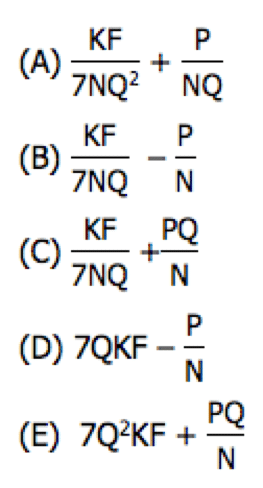
This post was updated in 2024 for the new GMAT.
How long should you study for the GMAT? Whether you’re a college student or working professional, the average GMAT student can expect to spend 100-170 hours studying, over the course of 2-3 months before your test date. The very top scorers on the GMAT often spend more than 170 hours, with study plans lasting up to 6 months.
You may be wondering when should you take the GMAT and how much of a difference the preparation time makes on your score. According to GMAC (the test-maker), there’s a direct correlation between the time you put in and your score outcome. On average, those who received scores of 500+ studied at least 60 hours.
To find out exactly how long you’ll need to get the score you want, take the quiz! Then, come back to the post and we’ll talk about some factors which may come into play when considering when to take the GMAT.
How Long Does It Take to Study for the GMAT? Narrowing It Down
It’s really easy to answer “How long do I need to prepare for GMAT?” and “How do I study for the GMAT?” by saying it depends. But, we know that’s not helpful for test takers creating GMAT study plans! Instead, let’s consider some of the factors that affect how much GMAT preparation time you need.
How much do you enjoy tests?
The first consideration to answer how long you should study for the GMAT is simply: how good are you at the whole standardized-test thing in general?
Some people regularly ace standardized tests. Others regularly flub them.
This is an estimation—at a gut-level, how comfortable are you, and how successful have you been, with the whole standardized-test thing?
How much of a point increase do you want?
Let’s say you have taken a free practice test, relatively cold, with little prep, and got your initial score. We’ll call this a baseline score.
What is your target score? How much do you want to improve from this cold-take baseline?
Let’s say, with moderate prep, you could improve 50 points over a relatively cold-take. That’s readily do-able.
Improving 100 points—that’s more of a challenge.
Improving 150 or 200 points or more—that will take exceptionally diligent work, including more practice tests and practice questions. You’ll need to sustain this GMAT study plan over quite some time, and even then, an improvement of this magnitude is not guaranteed.
How competitive are the programs you’re applying to?
If you’re not sure how much of a point increase you need, do some research into the way the schools you’re applying to use GMAT scores.
For some business schools, GMAT scores are super important.
Doing your research to determine admitted students’ average GMAT scores and going in-depth on admissions websites can help you answer this question.
How long do you have for GMAT prep?
A 3 month study plan, with 1.5-2.5 hours of GMAT study time per session is probably enough to produce 50-100 point score increase for most people from a relatively cold-take score.
Again, this assumes eight hours of sleep a night, a healthy lifestyle, and a college-graduate level of learning and retention.
If you want to improve substantially more than 50-100 points, extend your GMAT study time for longer time than three months.
In general, the more you can spread your study out over a long period—say, six months—the more time you will have to return a second and even a third time to each topic. This will take advantage of how the brain learns and processes. Repeated exposure helps to encode material into long-term memory.
When should you take the GMAT?
Let’s face it: what we want to do and what we can do are often two different things.
Figuring out how many days you should study and when to take the GMAT depends, in part, on how many hours per day you can reasonably study.
Let’s say that 1 hour a day for six months would be very approximately equivalent to six hours of studying a day for one month. The caveat, of course, is most people have real limits concerning how much they can focus.
Many also have limitations on how much info they can absorb and assimilate in a single day. Can you put in six hours a day of quality, high-focus study time, day after day, for a month? If so, that’s fantastic.
However, for most people—not only because of the practical constraints of job and family but also because of the cognitive constraints on focus and assimilation—the best way to study for the GMAT would be to spend less-time-per-day over a longer number of days. Be gentle and reasonable with yourself by preventing stretching your limits too far.
You’ll also want to keep in mind any limitations coming up within your schedule. Whether you’ll be able to anticipate something fun—relaxing beach day, anyone?—or something much less relaxing like planning and executing a move, you’ll need to be introspective about your capabilities and your own calendar to build time commitments into your GMAT study schedule.
Regardless of how much time you have available to study, the GMAT exam requires 2.25 hours of intensive brain power. You’ll need to build your mental stamina. Here are a few mental focus tips from our test prep experts that can help:
How strong are your skills already?
Consider the three categories—Quantitative, Verbal, and Data Insights. On a 1-10 scale, how would you rank your relative aptitudes in each? This may play into extra time over and above the time you spend studying specifically for the GMAT.
What are your weak areas? And how weak are they?
If you would rate either of the above categories three or below, that’s an indication you need extra GMAT study time and thus an extra head start.
If you are a math whiz but weak in verbal, and most especially if English is not your first language, then yes, pursue a moderate study schedule. But! More importantly, READ!
Read at least an hour a day—two hours a day would be better. Reading material similar to what you’ll find on the GMAT will help you practice the analysis skills you will need on both GMAT Critical Reasoning and GMAT Reading Comprehension.
Ideally, you will begin this daily reading habit well before the rest of your GMAT studying—a year or more.
Where will you get the time to do all this reading? Well, if you sharply reduce the time spent on social media, TV, video games, and other forms of electronic entertainment, you actually will be doing your brain a favor.
If you are relatively comfortable in verbal, and you haven’t even looked at math since an unfriendly farewell a few years back, then you need to study math, starting pretty much as soon as you finish reading this post.
You don’t get a calculator on the GMAT Quant section, so practice mental math—every day, you should add & subtract & multiply & divide in your head.
Get remedial books published for high school students, “Algebra Review”, “Geometry Review”, and start reading.
Look for every possible application of math in your life. Think areas of rooms, grocery bills, gas mileage, and the like. Do real-world math.
Whether you are weaker in math or verbal, your weaknesses will require extra focus, which should should be considered over and above how long you study for the GMAT. These are the extra number of hours you need to study for the GMAT.
So how long should you study for the GMAT?
As you can see, studying for the GMAT is a highly personalized process affected by a number of factors.
Remember, the GMAT exam is built to be difficult in order to test your aptitude on logical reasoning, quant, and verbal under stress. Many others have come before you and crushed it and so can you!
If you’re ready to put in the hours to reach your GMAT score goals, Magoosh GMAT can help! We offer over 800 practice questions and 200 video lessons to cover everything you need to know for the GMAT. Try us for free with a 1-week trial!
You can do this 😎 We believe in you!





